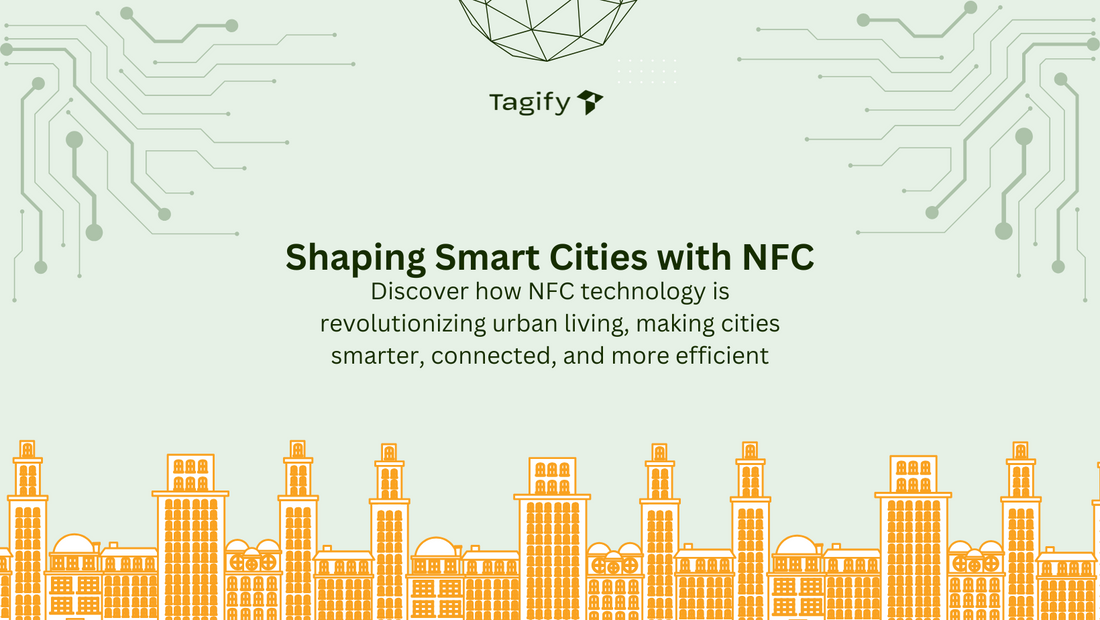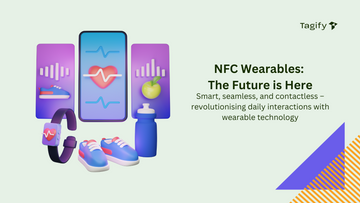Smart Cities, Smarter NFC

Contents
- 1- NFC and the Rise of Smart Cities: Revolutionizing Urban Living
- 2- Enhancing Public Transportation
- 3- Streamlining Parking Solutions
- 4- Contactless Payments for Urban Services
- 5- Intelligent Waste Management
- 6- Improving Public Safety and Security
- 7- Seamless Access to Urban Amenities
- 8- Smart Tourism and Cultural Integration
- 9- Supporting Green Initiatives
- 10- The Road Ahead for NFC in Smart Cities
NFC and the Rise of Smart Cities: Revolutionizing Urban Living
In an era of rapid technological advancements, the concept of smart cities is transforming how urban environments function. These cities integrate technology into infrastructure and services to enhance the quality of life for residents, promote sustainability, and streamline urban management. Among the numerous technologies fueling this transformation, Near Field Communication (NFC) is emerging as a game-changer. With its ability to enable seamless data exchange and interaction, NFC is laying the foundation for smarter, more connected cities.
Enhancing Public Transportation
One of the most significant applications of NFC technology in smart cities is in public transportation systems. NFC-enabled cards and smartphones simplify the process of ticketing and payment. Instead of waiting in long queues to purchase tickets, commuters can tap their NFC devices on payment terminals to access buses, trains, or subways.
Moreover, NFC technology can store real-time schedules and navigation assistance, providing passengers with up-to-date information about delays or route changes. For cities aiming to reduce their carbon footprint, this encourages more people to switch from personal vehicles to efficient public transportation.
Streamlining Parking Solutions
Parking in densely populated urban areas can be a frustrating experience. NFC-enabled parking systems eliminate much of this hassle. Smart parking meters equipped with NFC technology allow drivers to pay parking fees by simply tapping their NFC-enabled cards or smartphones. Additionally, these systems can integrate with apps to notify drivers about available parking spots in real-time, saving time and reducing traffic congestion.
Contactless Payments for Urban Services
Smart cities rely on cashless ecosystems to improve efficiency and reduce physical infrastructure costs. NFC technology is pivotal in driving this transition. From paying utility bills and accessing public amenities to purchasing items at local markets, NFC-enabled payment systems create a seamless and secure transaction experience. The widespread adoption of such systems can significantly boost a city's economic efficiency.
Intelligent Waste Management
Waste management is a critical challenge for urban environments, and smart cities are turning to NFC technology to address this issue. NFC tags on waste bins can monitor their fill levels and send data to municipal systems, optimizing collection routes and schedules. This reduces unnecessary trips and minimizes fuel consumption, contributing to sustainability goals.
Improving Public Safety and Security
NFC is also playing a crucial role in enhancing public safety. Emergency services, such as ambulances or firefighters, can use NFC-enabled systems for rapid access to critical information. For example, NFC tags on buildings can provide first responders with details about the layout, hazardous materials, or emergency exits, enabling quicker and more efficient action during emergencies.
Seamless Access to Urban Amenities
NFC technology makes accessing urban services such as libraries, gyms, or public bikes more convenient. Residents can use NFC-enabled cards or smartphones as keys to unlock doors, borrow books, or rent bikes. These applications not only improve user convenience but also streamline administrative operations for city management.
Smart Tourism and Cultural Integration
NFC tags placed at historical landmarks, museums, or cultural sites offer tourists an interactive experience. By tapping their NFC devices, visitors can access detailed information, virtual tours, or multimedia guides. This enhances the tourism experience while promoting local heritage.
Supporting Green Initiatives
Smart cities are inherently focused on sustainability, and NFC plays a vital role in achieving this. For example, NFC-enabled systems encourage the use of digital receipts, reducing paper waste. Similarly, the ability to manage utilities like electricity and water through NFC-integrated systems fosters resource conservation.
The Road Ahead for NFC in Smart Cities
As cities continue to grow and evolve, the role of NFC technology will only expand. From making everyday activities more convenient to addressing critical urban challenges, NFC is at the forefront of the smart city revolution. It connects residents to services seamlessly while promoting a sustainable and efficient future.
For businesses and innovators looking to contribute to the smart city ecosystem, NFC technology offers endless opportunities. Whether it’s enabling contactless payments, improving public transport, or enhancing safety systems, NFC is laying the groundwork for the cities of tomorrow.
NFC technology isn't just a tool—it's a transformative force shaping the urban landscapes of the future. By bridging the gap between technology and day-to-day living, NFC is unlocking the full potential of smart cities, one tap at a time.









